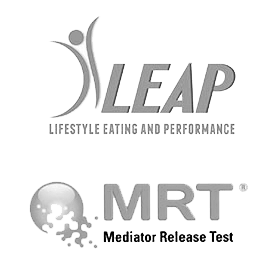Is IBS Curable?
Have you ever wondered what causes IBS? Buzz words, like high FODMAP foods, sucrose intolerance, and IBS triggers are all over the internet. For each solution, there is contradicting information.
It’s 8PM. You’re bloated, crampy, maybe feeling a little like you have to use the bathroom even though you know you don’t. Isn’t there a cure? You ask yourself. Read on to learn more about all things IBS.

How do you know you have IBS?
You may decide on your own based on what you have seen and read. Your doctor may have told you after multiple visits for your mysterious GI symptoms. But how do you REALLY know?
IBS is a ‘functional gastrointestinal disorder’ diagnosed based on ROME III criteria. This is basically an algorithm which asks ‘in the past 3 months, have you had more than 3 days/month of the following: abdominal discomfort, change in frequency of stool, change in form or appearance of stool’. Some physicians consider how this GI distress affects your quality of life and use that to further support the diagnosis.
What causes IBS?
While this may seem like a great mystery, it is simply a complicated and personal answer. IBS can develop from:
-An old foodborne illness, like salmonella
-Bacterial gastritis, from contaminated food or water
-Gut mucosa damage (leaky gut) from a poor diet, high alcohol consumption, stress, NSAID use…
-STRESS
-An imbalance in ‘good’ and ‘bad’ gut bacteria (gut flora) also called dysbiosis
-An injury to the central nervous system, such as a head trauma, that affects the vagus nerve and results in poor communication with the gut when it’s time to poop
-Food allergies
-Food sensitivities or intolerances
A word about stress and anxiety
Our gut has tons of neurotransmitters. Research about the gut-brain axis, or relationship between the central nervous system (brain stuff) and enteric nervous system (gut stuff) is heating up. Because so many people with anxiety, or under high stress seem to develop IBS, we (researchers) want to know why just as much as you do, honestly. So far, we are thinking the huge amount of serotonin (mood stabilizing chemical messenger) in the gut can be damaged when the gut is not in balance, leading to the brain not being able to, like, stabilize the mood. Make sense?
The gut also synthesizes epinephrine and norepinephrine- those are responsible for that fight or flight response. If this is inappropriately triggered, it can speed up the transit time of food from mouth to anus.
This is why, sometimes, anxiety + food= diarrhea.
So with IBS or any kind of imbalance of gut flora, damage to the intestinal lining, excess toxins in the gut, excess inflammation-those valuable brain chemicals (serotonin, epinephrine/norepinephrine) are out of whack. This is a lot of information to say, basically, that YES stress, anxiety, and GI problems are connected, and we are learning more every day.
Traditional IBS Treatment
Our physicians are wise and wonderful people who diagnose and treat the diagnosis. The healthcare model is designed for you to express to your healthcare team what your symptoms are. They run tests if needed. Between the testing and your subjective information about how you feel, your doctor will use their knowledge, training, and resources to make a diagnosis. That diagnosis is then what they are going to address. This works perfectly for a wide variety of ailments. Broken foot=cast, deep cut=stiches and maybe antibiotics, cancer=chemo/radiation, etc. However, because of our insurance model and overall healthcare situation in the US, combined with busy schedules and even some fear, we often look to our doctors to treat everything. Some with anxiety and depression arrive at the primary care doctor looking for a medication to fix it. Stomach problems, go to the doctor to fix it!
When a physician diagnoses IBS, they can only treat symptoms. This is true for primary care doctors and gastroenterologists. If you have diarrhea, they may give you an anti-diarrheal medication, often accompany it with a warning to not take every day. If you are constipated, you may be prescribed pharmaceutical grade laxative, or instructed to consume MiraLAX, or more fiber in the form of a powder. These are not cures for IBS. They are to manage symptoms. While on some medications you may feel better but stop taking them and your symptoms come back. A physician may try Xifaxin/ rifaximin, a very expensive antibiotic formulated for the GI tract. Sometimes this works, and sometimes it doesn’t.
The Cure
Many people with unbearable stomach issues do end up at a specialist, called a gastroenterologist. In my practice, I see a lot of clients come from these doctors with MiraLAX and/or incredibly generalized advice on what to eat like ‘don’t eat any fiber’ or ‘go gluten free’. Why don’t more doctors tell you more about nutrition? This is a question I get every day. The answer is because they don’t know about nutrition. Nutrition is not a treatment for a traditional diagnosis according to medical training. Weight loss-yes, but personalized nutrition, specific elimination WITH re-introduction? Not a treatment that you will find in a medical textbook.
This is why you need a Dietitian
It’s really okay that your doctor cannot give you personalized nutrition advice. Imagine how long the wait would be if anyone who wanted a nutrition consultation could just throw down in the middle of their 15-minute appointment. Imagine how much longer medical school would be if physicians had to learn, in addition to how to save lives and all that, exactly how each food affects each disease state, minute details on carbohydrate metabolism, nutrition counseling, food safety, vitamin and mineral content of each food, science of the processing of food………
A registered dietitian usually has about 6 years of nutrition focused education under their belt, plus 1200 hours of supervised practice, PLUS we pass a board exam (and it’s a doozy). Additionally, we are up to date with the evidence, turning to national governing bodies for consensus based on research (not Karen), and we keep up to date when recommendations passed along for years turn out to be not true, or when a trendy diet is very beneficial or very harmful. It is our ethical responsibility to be about all food all the time.
IBS isn’t really 1 thing. It is a collection of symptoms caused by something else. A physician should always be a stop in your IBS journey to rule out more serious diagnosis and to be informed and involved in your healthcare. BUT in addition to your doc, find someone who looks for the root cause of your symptoms which we tie up in a cute bow and name IBS. Functional medicine and functional nutrition are centered around the root cause model. A functional practitioner who has time to spend with you can identify the root cause of your symptoms, remove the triggers, replace what your body is needing like enzymes and vitamins, repair the gut lining, reinocculate the gut flora with the good stuff, and help you to rebalance your gut and your life (this may include finding a therapist) so stress is not controlling the show anymore.
Is there is cure for IBS? YES. Is it a pill? Nope. Takes a little longer. But it is worth it to get there.







